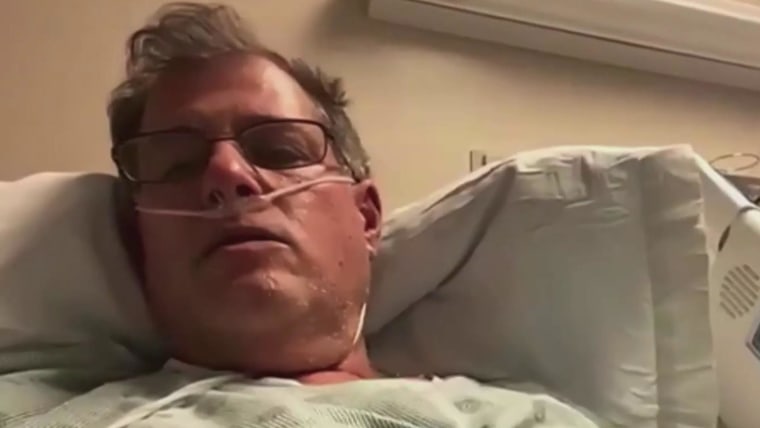But he warned that there’s a limit to what Houston hospitals can do to respond to the crisis.
“We are adding more capacity, but we are absolutely stretched now, and if it keeps going this way, we’re going to run out of room. We’re going to look like New York,” McCarthy said, emphasizing the need for Houston residents to stay home and avoid crowds to slow the virus’s spread.
One of Houston’s largest hospital systems, HCA Healthcare, also has been caring for dozens of COVID-19 patients in its emergency departments. In a statement, HCA spokeswoman Debra Burbridge said hospital officials have taken steps to reduce the impact on patients, including sending staff members who would normally be performing or assisting with elective surgeries — which have been suspended under an order by the governor — to treat patients with COVID-19.
Dr. Kusum Mathews, an assistant professor of critical care and emergency medicine at the Icahn School of Medicine at Mount Sinai in New York, said hospitals can take steps to reduce the risks of overcrowded ERs, including some of those described by Memorial Hermann and HCA officials.
Treating patients sickened by the virus “has outstripped every stretch of our imagination,” Mathews said. “We have had to put beds in hallways, double up patient rooms … just to allow for offloading the emergency department to get more patients in.”
While Houston’s top hospital executives have repeatedly said they can add hundreds of new intensive care beds to meet the demand, at least for the next couple of weeks, the number of patients being treated in emergency rooms demonstrates the difficulty of executing those plans in the midst of a rapidly growing crisis, officials say.
“Those things are not like a switch-key type of activity,” said Porsa, the Harris Health System CEO, noting that his hospitals have had to send patients to hospitals outside of Houston to make room. “The bottleneck to do that is really staffing. As you can imagine, ICU nurses are not a dime a dozen. They are very hard to come by, and it takes time to actually be able to do that.”
Download the NBC News app for full coverage and alerts about the coronavirus outbreak
The logjam of patients being treated in ERs has also led to delayed emergency response times across the city, according to Houston Fire Department officials.
When hospitals get overloaded, they ask regional authorities to divert ambulances elsewhere. For example, Memorial Hermann’s northeast hospital was on diversion status just 2 percent of the time during an eight-day period in late June and early July last year; it was on diversion status 58 percent of the time during the same time period this year. At Houston’s busiest public hospital, Ben Taub, the number jumped to 81 percent from 58 percent.
The problem, said Houston Fire Department Assistant Chief Matt White, is that when every hospital is maxed out, ambulance crews have no choice but to take patients to emergency departments that are too busy to quickly receive them. And by law, hospitals must screen and stabilize any patient who arrives.
“When everyone is on diversion,” White said, “nobody is on diversion.”
Earlier coronavirus outbreaks inundated emergency rooms in New York City and Detroit, but lockdown orders in those cities led to fewer car accidents and a reduction in violent crime, freeing more space in ERs for COVID patients.
With most Texas businesses still open and no mandatory stay-at-home order, hospitals in Houston and other COVID-19 hot spots face the added challenge of making room for COVID patients while still dealing with a steady flow of patients seeking care for other medical emergencies.
And across the country, people with chronic health problems who delayed seeking care earlier in the pandemic are now showing up for treatment, taking up beds, said Dr. Marc Eckstein, medical director of the Los Angeles Fire Department and a professor of emergency medicine at Keck School of Medicine of the University of Southern California.
Despite these challenges, McCarthy, the Memorial Hermann executive, said it’s essential that people continue to come to the hospital for medical emergencies. He pointed to an NBC News and ProPublica report this week that showed a growing number of people are dying suddenly at home, before emergency responders can reach them.
“If a patient believes they have a serious medical issue, they still need to come to the emergency department,” McCarthy said. “We will make the capacity to take care of them. Delaying care for time-sensitive emergencies is time we don’t get back. If they wait to call for help when they are having a heart attack, it will be worse than if they come in early.”

